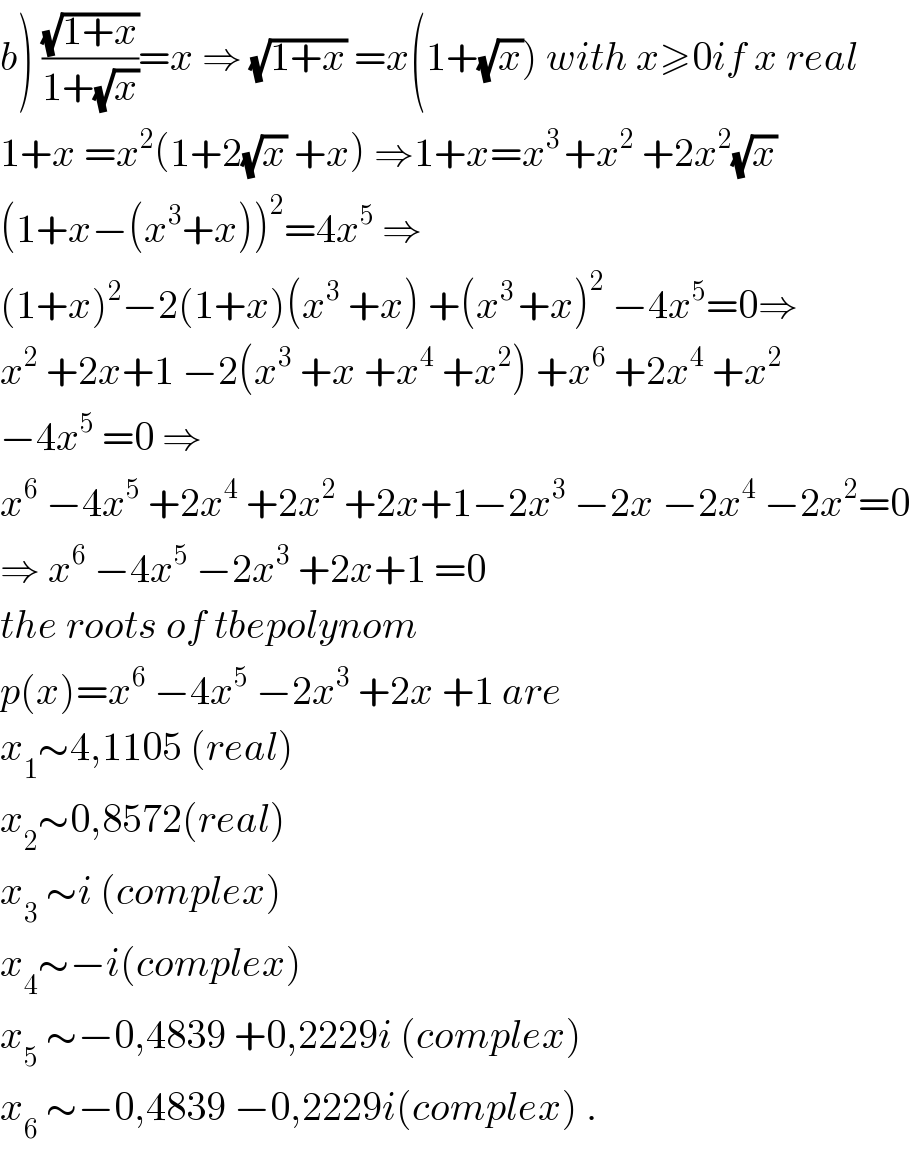
Question and Answers Forum
Question Number 37324 by behi83417@gmail.com last updated on 11/Jun/18

Commented by math khazana by abdo last updated on 12/Jun/18

Commented by math khazana by abdo last updated on 12/Jun/18

Commented by behi83417@gmail.com last updated on 12/Jun/18

